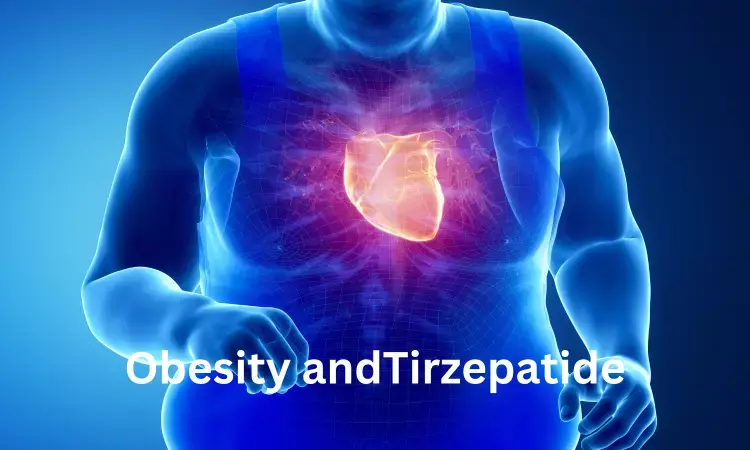- Home
- Medical news & Guidelines
- Anesthesiology
- Cardiology and CTVS
- Critical Care
- Dentistry
- Dermatology
- Diabetes and Endocrinology
- ENT
- Gastroenterology
- Medicine
- Nephrology
- Neurology
- Obstretics-Gynaecology
- Oncology
- Ophthalmology
- Orthopaedics
- Pediatrics-Neonatology
- Psychiatry
- Pulmonology
- Radiology
- Surgery
- Urology
- Laboratory Medicine
- Diet
- Nursing
- Paramedical
- Physiotherapy
- Health news
- Fact Check
- Bone Health Fact Check
- Brain Health Fact Check
- Cancer Related Fact Check
- Child Care Fact Check
- Dental and oral health fact check
- Diabetes and metabolic health fact check
- Diet and Nutrition Fact Check
- Eye and ENT Care Fact Check
- Fitness fact check
- Gut health fact check
- Heart health fact check
- Kidney health fact check
- Medical education fact check
- Men's health fact check
- Respiratory fact check
- Skin and hair care fact check
- Vaccine and Immunization fact check
- Women's health fact check
- AYUSH
- State News
- Andaman and Nicobar Islands
- Andhra Pradesh
- Arunachal Pradesh
- Assam
- Bihar
- Chandigarh
- Chattisgarh
- Dadra and Nagar Haveli
- Daman and Diu
- Delhi
- Goa
- Gujarat
- Haryana
- Himachal Pradesh
- Jammu & Kashmir
- Jharkhand
- Karnataka
- Kerala
- Ladakh
- Lakshadweep
- Madhya Pradesh
- Maharashtra
- Manipur
- Meghalaya
- Mizoram
- Nagaland
- Odisha
- Puducherry
- Punjab
- Rajasthan
- Sikkim
- Tamil Nadu
- Telangana
- Tripura
- Uttar Pradesh
- Uttrakhand
- West Bengal
- Medical Education
- Industry
Tirzepatide outscores Semglutide for weight loss in head to head comparison

Obesity treatment widely ranges from lifestyle changes to many drugs. Obesity is now recognized as a disease and treatments that induce short-term weight loss often fail over time. Effective treatments are needed to address the complex and persistent hormonal, metabolic and neurochemical adaptations; poor adherence; and persistence experienced by those living with obesity.
The study in Diabetes, Obesity and Metabolism aimed to use indirect treatment comparisons (ITCs) using placebo as the common comparator to provide evidence on the comparative efficacy of tirzepatide 10 and 15 mg versus semaglutide 2.4 mg.
The study found that this analysis showed greater weight loss with tirzepatide 10 and 15 mg versus semaglutide 2.4 mg.
Researchers used SURMOUNT-1 and STEP 1 trial data, mean percentage change in body weight from baseline and odds ratio (OR) of achieving 5% or greater weight loss were compared between tirzepatide 10 and 15 mg at week 72 and semaglutide 2.4 mg at week 68 using matching-adjusted indirect comparison of the efficacy estimand. Sensitivity analyses were completed using different methods, including the Bucher method, also using different estimands and/or time points.
The key findings of the study are
• Greater reductions in percentage change in body weight were observed with tirzepatide 10 and 15 mg versus semaglutide 2.4 mg (tirzepatide 10 mg mean difference: −4.67% [95% CI −5.91%, −3.43%]; tirzepatide 15 mg mean difference: −5.92% [95% CI −7.16%, −4.68%]; both P < .001).
• Similarly, more participants achieved 5% or greater weight loss with tirzepatide 10 mg (OR 2.61 [95% CI 1.48, 4.57]; P < .001) and 15 mg (OR 2.75 [95% CI 1.57, 4.81]; P < .001) compared with semaglutide 2.4 mg.
• All sensitivity analyses were consistent, except for an OR of achieving 5% or greater weight loss with tirzepatide 10 mg using the Bucher method to analyse the treatment regimen estimand (P = .074).
The researchers added currently there are no direct comparisons of tirzepatide and semaglutide for weight management. Using the matching-adjusted indirect treatment comparison method to compare the efficacy of tirzepatide and semaglutide for chronic weight management, this analysis showed greater weight loss with tirzepatide 10 and 15 mg versus semaglutide 2.4 mg.
Reference: Carel W. le Roux MD, Emily R. Hankosky PhD,; Tirzepatide 10 and 15 mg compared with semaglutide 2.4 mg for the treatment of obesity: An indirect treatment comparison; 21 June 2023, Diabetes, Obesity and Metabolism; DOI: https://doi.org/10.1111/dom.15148.
Dr Kartikeya Kohli is an Internal Medicine Consultant at Sitaram Bhartia Hospital in Delhi with super speciality training in Nephrology. He has worked with various eminent hospitals like Indraprastha Apollo Hospital, Sir Gangaram Hospital. He holds an MBBS from Kasturba Medical College Manipal, DNB Internal Medicine, Post Graduate Diploma in Clinical Research and Business Development, Fellow DNB Nephrology, MRCP and ECFMG Certification. He has been closely associated with India Medical Association South Delhi Branch and Delhi Medical Association and has been organising continuing medical education programs on their behalf from time to time. Further he has been contributing medical articles for their newsletters as well. He is also associated with electronic media and TV for conduction and presentation of health programs. He has been associated with Medical Dialogues for last 3 years and contributing articles on regular basis.
Dr Kamal Kant Kohli-MBBS, DTCD- a chest specialist with more than 30 years of practice and a flair for writing clinical articles, Dr Kamal Kant Kohli joined Medical Dialogues as a Chief Editor of Medical News. Besides writing articles, as an editor, he proofreads and verifies all the medical content published on Medical Dialogues including those coming from journals, studies,medical conferences,guidelines etc. Email: drkohli@medicaldialogues.in. Contact no. 011-43720751


